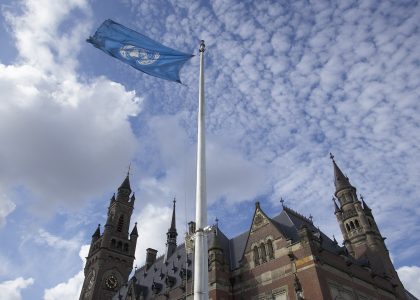Terrorism, or the threat of terrorism, is a constant concern in many countries around the world. Dr. Lee Jarvis reflects on newly published research on terrorism and the future study of the issue.
What does it mean to study terrorism critically? What would such an enterprise look like, and what should it seek to achieve (and for whom?) Does ‘critical’ imply a particular political or ideological standpoint, associated, for instance, with Marxist approaches? Or, does it involve highlighting the assumptions, biases and limitations that can be found within all approaches to terrorism (and everything else)? Do debates spawned by such questions have any value beyond the classroom (or examination hall), and, if so, what is it?
In recent years there has been a growing interest in questions such as these, associated with what some have called ‘critical terrorism studies’. Although multifaceted, this enterprise emerged, in part, from a sense of dissatisfaction with more ‘traditional’ approaches to studying terrorism – and especially the emphasis therein on ‘solving’ this problem of non-state violence. Also underpinning this development, however, was widespread scholarly opposition to the ways in which powerful Western states have sought to combat the threat of terrorism in recent years. Academics, many sensed, could – and should – do more than contribute to the post-9/11 ‘war on terror’ with its vast death tolls, obscene financial costs, abuses and scandals, programme of extraordinary rendition, and trampling over established civil liberties. For some, this involved de-exceptionalising the threat posed by non-state terrorism, by demonstrating the historical and continuing importance of state terrorism. Others focused their attention on deconstructing contemporary terrorism discourse, questioning the identities enacted therein, and demonstrating how claims about ‘new terrorism’ and the like serve to legitimise counter-terrorism programmes.
Although a relatively recent development, critical terrorism studies now has an academic journal publishing work in this area, an introductory textbook, a guide to research methods, a working group for researchers, and many of the other features associated with established research programmes. In an attempt to push this agenda forward still further, Christopher Baker-Beall, Charlotte Heath-Kelly and I recently also edited a new Special Issue of Critical Studies on Terrorism around the theme: Practice, Limits and Experience. This issue asks what is expected of ‘critically’ inclined scholars now that the war on terror has supposedly ended? With many of this paradigm’s abuses and exceptionalisms now outed or ended, how do we engage with the normalisation of its remaining programmes and practices: programmes and practices that are likely to be with us for many years to come?
Contributions to this Special Issue engage with these questions in a number of ways. Christine Sylvester, for example, juxtaposes a fictional account of a battle in the Iraq war with media coverage of the Boston bombing. Michael Loadenthal investigates the infiltration of activist groups by police and the impact this has on opponents of state practices. Thomas Martin explores the UK’s Prevent programme, while Megan O’Branski puts contemporary counter-terrorism practices in historical context by looking at the 1981 Irish Republican Hunger Strike. Christos Boukalas and Florian Edelmann offer new readings of the theorists Agamben and Luhmann respectively, while Claire Lyness looks at debates within terrorism studies over suicide bombing as an exercise in ‘governmentality’. Michael Lister and I, finally, offer an attempt to push discussion of state terrorism forward by summarising achievements within this literature and calling for greater engagement with ‘the state’ therein.
As Chris, Charlotte and I argue in the introduction to the Issue, all of these articles demonstrate the variety and importance of contemporary critical work around terrorism. Familiar thinkers like Michel Foucault and Judith Butler are put to new readings or uses, while thinkers who will be less familiar to some, such as Luhmann, are brought into these discussions. New research materials such as fiction are combined with unusual case studies. And, the articles also, importantly, explore (counter-)terrorism from a diversity of contexts: contemporary and historical. All of this, we suggest, speaks to the vibrancy of contemporary critical debate on terrorism, leaving us very optimistic about its current and future relevance.
Lee Jarvis is a Senior Lecturer in International Security in the School of Political, Social and International Studies at the University of East Anglia. For more information on his research see his staff profile page or personal website or follow him on twitter @LeeJarvisPols.
Photo credit: Wikipedia





